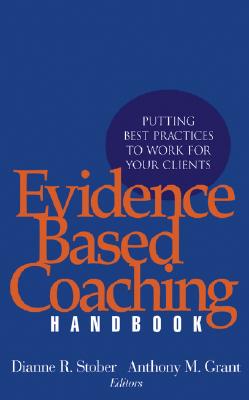The Evidence Based Coaching Handbook applies recent behavioral science research to executive and personal coaching, bringing multiple disciplines to bear on why and how coaching works. A groundbreaking resource for this burgeoning profession, this text presents several different coaching approaches along with the empirical and theoretical knowledge base supporting each.
Recognizing the special character of coaching-that the coaching process is non-medical, collaborative, and highly contextual-the authors lay out an evidence-based coaching model that allows practitioners to integrate their own expertise and the needs of their individual clients with the best current knowledge. This gives coaches the ability to better understand and optimize their own coaching interventions, while not having to conform to a single, rigidly defined practice standard.
The Evidence Based Coaching Handbook looks at various approaches and applies each to the same two case studies, demonstrating through this practical comparison the methods, assumptions, and concepts at work in the different approaches.
The coverage includes:
- An overview: a contextual model of coaching approaches
- Systems and complexity theory
- The behavioral perspective
- The humanistic perspective
- Cognitive coaching
- Adult development theory
- An integrative, goal-focused approach
- Psychoanalytically informed coaching
- Positive psychology
- An adult learning approach
- An adventure-based framework
- Culture and coaching












